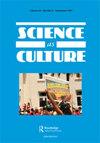有组织的无知:法国农药法规中的知识幻觉
IF 2.4
3区 哲学
Q1 CULTURAL STUDIES
引用次数: 2
摘要
摘要采用组织社会学的方法,对法国农药监管的研究强调了secrecies的意外影响在有组织的无知中的作用。这表明,主要监管机构法国食品安全局(ANSES)以及农药使用者农民都发展了自己的保密亚文化,以隐瞒有关其真实做法的信息。这些亚文化默契地相互支持:农民围绕他们的做法创造的不透明性扼杀了知识生产和对他们接触杀虫剂的报告。因此,风险标准从未受到质疑,这确保了法国食品安全机构保持其科学声誉。反过来,官方风险标准化从未受到质疑,这一事实阻碍了农药法规的加强,否则会阻碍日常作物管理。这些组合的亚文化之间的这种默契保持了一种错觉,即用于风险管理的监管科学可以控制广泛的危险,而事实上,它对这些危险的了解有限,甚至已经过时。这加深了有组织的无知的定义。它表明,非知识生产不仅来自STS研究所显示的围绕官方专业知识的政治、科学和监管框架的复杂组合,还来自更广泛、更不易察觉的社会学机制,如默契。在战略无知生产中,故意行为的意外影响也与故意行为一样重要。本文章由计算机程序翻译,如有差异,请以英文原文为准。
Secrecies as Organized Ignorance: The Illusion of Knowledge in French Pesticide Regulation
ABSTRACT Taking an organizational sociology approach, the study of French pesticide regulation highlights the role of the unexpected effects of secrecies in organized ignorance. It demonstrates that the main regulator, the French food safety agency (ANSES), as well as the users of pesticides, the farmers, develop their own subcultures of secrecy to conceal information about their real practices. These subcultures support each other tacitly: the opacity created by farmers around their practices stifle knowledge production and reporting on their exposure to pesticides. Consequently, the risk standards are never called into question, which ensures that the French food safety agency maintains its scientific reputation. In turn, the fact that official standardization of risk is never challenged, impedes the reinforcement of pesticide regulations that would otherwise hamper day-to-day crop management. This tacit agreement between these combined subcultures maintains the illusion that the regulatory science used for risk management could control a broad spectrum of hazards, when in fact it has only a limited or even outdated knowledge of them. This deepens the definitions of organized ignorance. It demonstrates that non-knowledge production results not only from the complex mix of political, scientific and regulatory frameworks surrounding official expertise as STS researches tend to show, but also from more widespread and less perceptible sociological mechanism such as tacit understanding. Unexpected effects of intentional actions also count as much as willful actions in strategic ignorance production.
求助全文
通过发布文献求助,成功后即可免费获取论文全文。
去求助
来源期刊

Science As Culture
Multiple-
CiteScore
5.20
自引率
3.80%
发文量
28
期刊介绍:
Our culture is a scientific one, defining what is natural and what is rational. Its values can be seen in what are sought out as facts and made as artefacts, what are designed as processes and products, and what are forged as weapons and filmed as wonders. In our daily experience, power is exercised through expertise, e.g. in science, technology and medicine. Science as Culture explores how all these shape the values which contend for influence over the wider society. Science mediates our cultural experience. It increasingly defines what it is to be a person, through genetics, medicine and information technology. Its values get embodied and naturalized in concepts, techniques, research priorities, gadgets and advertising. Many films, artworks and novels express popular concerns about these developments. In a society where icons of progress are drawn from science, technology and medicine, they are either celebrated or demonised. Often their progress is feared as ’unnatural’, while their critics are labelled ’irrational’. Public concerns are rebuffed by ostensibly value-neutral experts and positivist polemics. Yet the culture of science is open to study like any other culture. Cultural studies analyses the role of expertise throughout society. Many journals address the history, philosophy and social studies of science, its popularisation, and the public understanding of society.
 求助内容:
求助内容: 应助结果提醒方式:
应助结果提醒方式:


